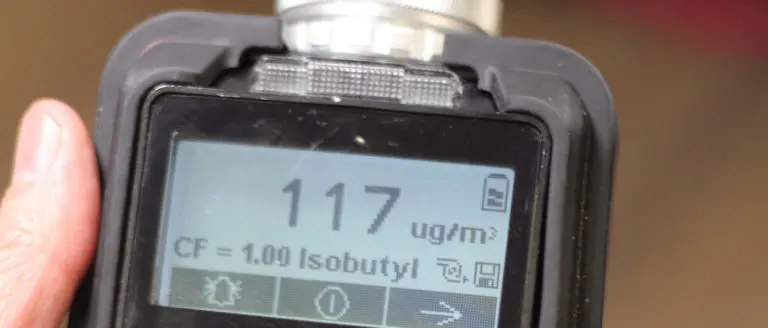JIS K0093 VOC Testing in Industrial Wastewater
The JIS K0093 method is a stringent regulatory framework for the determination of volatile organic compounds (VOCs) in industrial wastewater. This service plays a critical role in ensuring that facilities adhere to environmental regulations and maintain sustainable operations.
VOC testing under JIS K0093 involves several steps, including sample collection, preparation, and analysis using gas chromatography with flame ionization detection (GC-FID). The method is designed to measure a wide range of organic compounds present in industrial wastewater. This service ensures that the discharge levels of VOCs comply with stringent environmental regulations.
The process begins with the collection of representative samples from various points within the facility's wastewater system. Proper sample preparation is crucial, as it involves conditioning the samples to remove water and other substances that could interfere with the analysis. Once prepared, the samples are analyzed using GC-FID, which separates the VOCs based on their boiling points.
The JIS K0093 method specifies the detection limits for various compounds, ensuring accurate quantification of VOC levels in wastewater. This is particularly important as it helps facilities monitor and control the release of hazardous materials into the environment. By adhering to this standard, companies can minimize their environmental footprint and comply with stringent regulatory requirements.
The significance of JIS K0093 lies not only in its technical precision but also in its broader implications for corporate responsibility and sustainability. Compliance with this method is a key indicator of a company's commitment to environmental stewardship. By providing accurate and reliable VOC testing, we empower our clients to make informed decisions that align with their sustainability goals.
The service includes comprehensive reporting on all detected compounds, along with recommendations for further action where necessary. This ensures that facilities are not only compliant but also proactive in addressing any potential issues related to VOC emissions.
| Compound | Detection Limit (mg/L) |
|---|---|
| Methylene chloride | 0.5 |
| Toluene | 1.0 |
| Benzene | 0.2 |
| Ethylbenzene | 0.5 |
| P-Xylene | 0.3 |
| O-Xylene | 0.4 |
The detection limits provided in the table are critical for ensuring that facilities can accurately monitor their VOC emissions. By adhering to these limits, companies can ensure they are not only compliant with JIS K0093 but also contributing positively to environmental sustainability.
Applied Standards
The testing of volatile organic compounds (VOCs) in industrial wastewater under the JIS K0093 standard is a robust and internationally recognized method. This section outlines the key aspects of this standard that govern the testing process.
- Detection Limits: The method specifies detection limits for various VOCs, ensuring accurate quantification of these compounds in wastewater.
- Sample Preparation: Proper conditioning of samples to remove water and other interfering substances is critical for accurate analysis.
- Analysis Method: Gas chromatography with flame ionization detection (GC-FID) is used to separate and quantify VOCs based on their boiling points.
- Reporting Criteria: Comprehensive reports are provided, detailing all detected compounds and offering recommendations for further action where necessary.
The JIS K0093 standard ensures that facilities can accurately monitor and control the release of hazardous materials into the environment. By adhering to this method, companies not only comply with regulatory requirements but also demonstrate their commitment to environmental sustainability.
Quality and Reliability Assurance
The quality and reliability of our VOC testing services under JIS K0093 are paramount. We employ state-of-the-art equipment and highly trained technicians who adhere strictly to the standard's protocols. Our commitment to accuracy is reflected in the consistent results we provide, ensuring that facilities can trust the data generated by our tests.
Our quality assurance processes include regular calibration of instruments, training for staff, and strict adherence to industry best practices. This ensures that each test conducted meets the highest standards of precision and reliability.
We also offer additional services such as calibration verification and method validation, which are crucial for maintaining compliance with JIS K0093. These supplementary services help facilities ensure their testing methods are accurate and consistent over time.
Our quality control measures include strict adherence to the standard's protocols, regular internal audits, and external quality assurance checks. This comprehensive approach ensures that our clients receive the most reliable data possible from their VOC testing.
Competitive Advantage and Market Impact
- Precision: Our VOC tests under JIS K0093 provide precise measurements, ensuring accurate quantification of VOC levels in industrial wastewater.
- Compliance: By adhering to this stringent standard, facilities can ensure they are fully compliant with regulatory requirements and industry best practices.
- Sustainability: Our services help companies minimize their environmental footprint by providing accurate data for monitoring and controlling VOC emissions.
- Risk Management: Early detection of potential issues through regular testing allows for proactive management, reducing the risk of compliance violations and associated penalties.
The ability to accurately measure VOCs in industrial wastewater is a competitive advantage that sets our service apart. It enables facilities to make informed decisions about their operations, ensuring they are not only compliant but also contributing positively to environmental sustainability.





